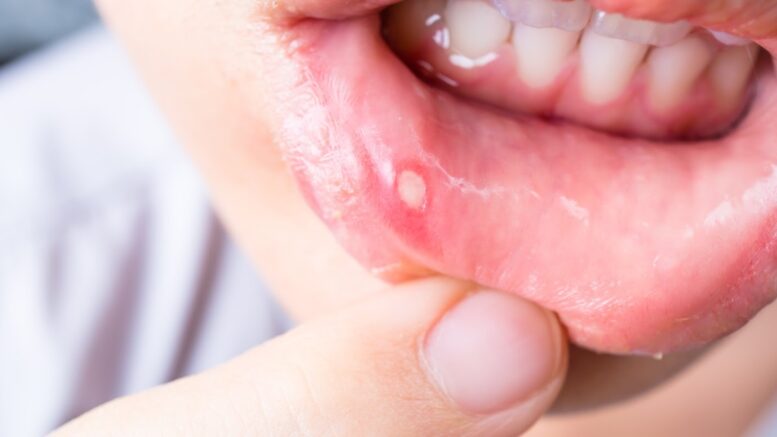Hand, foot, and mouth disease is an unpleasant illness that can affect children and adults of any age. It’s characterized by symptoms such as rashes around the hands, feet, or even in the mouth. In most cases, hand, foot, and mouth disease is minor and resolves quickly with rest and proper hydration; however, there are times when the condition may worsen to a more severe level.
If you have been diagnosed with hand, foot, and mouth disease, you must know what precautions to take if the illness worsens. Read on to learn about best practices for managing worsening hand, foot, and mouth disease so that you can prepare for these unfortunate circumstances.
Visit your healthcare provider
If your hand, foot, and mouth disease symptoms become more severe or the condition worsens, it’s essential to visit your healthcare provider. Your doctor will be able to evaluate your condition and make sure that eczema coxsackium, which is a rare but severe type of virus, has not set in. They may also provide treatment options to help manage and reduce the symptoms. Your healthcare provider may also order lab tests to evaluate for any bacterial infections that may have developed due to the condition.
Monitor your symptoms
If you have been diagnosed with hand, foot, and mouth disease and the symptoms have worsened, it is crucial to monitor the condition closely. If the fever is exceptionally high or lasts longer than a few days, there could be complications, and further examination is warranted. It is also necessary to stay aware of any new symptoms that may appear and note how quickly they appear after onset.

Contact your doctor if any of the previously mentioned symptoms worsen or new ones appear to seek appropriate care. Furthermore, plenty of rest can help manage some symptoms, such as fatigue, and increase overall body strength for better healing.
Practice good hygiene
If your hand, foot, and mouth disease worsen, you must consult a medical professional immediately for treatment. While at home, there are specific actions you can take to ease the symptoms, such as practicing good hygiene. It can include washing hands regularly with soap and water, avoiding contact with others if possible, staying hydrated by drinking plenty of fluids, and getting adequate rest.
Sometimes, a doctor may advise using medications or over-the-counter treatments to reduce fever or pain. If left untreated or attempts at self-care do not improve your condition within 48 hours, you must seek medical attention as further complications could arise.
Take medications as prescribed
If your healthcare provider prescribes medication to treat the condition, you must take the medications as prescribed. If any of the side effects are particularly bothersome or worsen, it is best to contact your doctor immediately so that adjustments can be made. Additionally, getting plenty of rest and drinking fluids while taking medication is essential to ensure that the body has enough energy and strength to fight off the infection.
Hand, foot, and mouth disease is a painful but treatable illness that can be managed with proper treatment and care.
Take steps to relieve discomfort
In addition to the previously mentioned steps, you can also take specific measures to relieve any discomfort associated with hand, foot, and mouth disease. These may include taking over-the-counter medications such as ibuprofen or acetaminophen for pain relief and applying topical creams or lotions containing menthol or camphor to help soothe the skin.
It is also essential to stay hydrated and get plenty of rest while taking any medications prescribed by your doctor. These steps may help reduce some more uncomfortable symptoms associated with hand, foot, and mouth diseases, such as fever, sore throat, and body aches.
Seek specialist care
If the symptoms associated with this condition do not improve or worsen, it is crucial to seek medical attention from a specialist as soon as possible. A specialist can provide further diagnosis and treatment options that could help reduce the severity of the symptoms associated with hand, foot, and mouth disease.
Furthermore, they can advise on lifestyle and dietary changes that may help manage the condition. It could include increased fruits and vegetables to enhance the body’s immune system or reducing sugar intake to keep any infection at bay.
Keep up with vaccinations
Finally, keeping your child up to date with their vaccinations is vital. Vaccines protect against various illnesses, including hand, foot, and mouth disease; therefore, ensuring that they are up to date can help reduce the risk of infection. Additionally, following any advice healthcare professionals give about hygiene and nutrition may also be beneficial in reducing the severity of any potential infection.
In conclusion
Taking all the necessary precautions is essential if your hand, foot, and mouth disease worsen. It may include seeking specialist care, practicing good hygiene, taking medications as prescribed, relieving discomfort with over-the-counter products, and keeping up with vaccinations. Doing this can help reduce the symptoms associated with this condition and prevent further complications.
